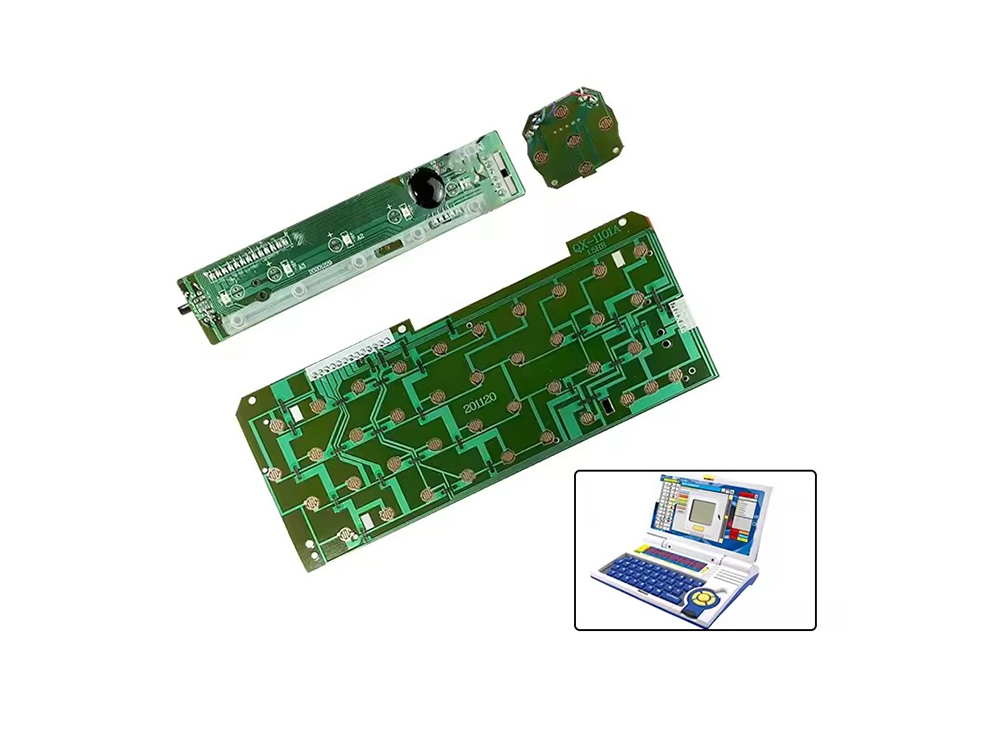How China Electronic Manufacturing Services Empower Startups in the Electronics Industry
2025-06-15
1. Introduction
In the realm of electronics, **China has established itself as a powerhouse** of manufacturing services. With a robust ecosystem that supports startups, these services offer a range of solutions from prototyping to full-scale production. For entrepreneurs in the electronics sector, leveraging **China's manufacturing capabilities** is not just beneficial; it's often essential for achieving competitive advantage in a crowded market.
2. The Role of Electronic Manufacturing Services in Startup Success
**Electronic Manufacturing Services (EMS)** encompasses a variety of operations, including design, production, assembly, and testing of electronic components. For startups, these services provide a crucial lifeline, enabling them to focus on **innovation and product development** while outsourcing the complex manufacturing processes. This symbiotic relationship fosters an environment where startups can thrive, reduce operational burdens, and significantly cut costs.

3. Key Advantages of Partnering with Chinese Manufacturers
3.1 Cost Efficiency and Competitive Pricing
One of the most compelling reasons startups turn to Chinese manufacturers is the **cost efficiency** that they offer. China’s well-established supply chains, coupled with lower labor costs, result in significantly reduced manufacturing expenses. This allows startups to allocate their financial resources more effectively, funneling investments into product development and marketing.
3.2 Rapid Prototyping and Shorter Time-to-Market
**Speed is critical** in the electronics industry. With the ability to produce prototypes quickly, Chinese manufacturers enable startups to test their ideas in real-time, iterate on designs, and launch products faster than ever. This rapid prototyping capability can be a game changer, reducing the time it takes to move from concept to market-ready product.
3.3 Access to Advanced Technology and Expertise
China is home to some of the world’s leading technology firms and **manufacturing expertise**. Startups that partner with Chinese manufacturers gain access to cutting-edge technologies, advanced machinery, and a wealth of knowledge in electronics manufacturing. This access can elevate a startup's product quality and innovation levels.
4. Navigating the Manufacturing Landscape in China
Understanding the complexities of the Chinese manufacturing landscape is crucial for startups. The landscape is varied, with manufacturers specializing in different aspects of electronics.
4.1 Understanding the Different Types of Manufacturers
**Different manufacturers offer unique capabilities**. Some focus on low-volume, high-mix production, while others excel in high-volume, low-mix environments. Identifying the right type of manufacturer is essential to align with your product needs and business goals.
4.2 Evaluating Quality Standards and Certifications
Quality is non-negotiable in electronics manufacturing. Startups must ensure that their chosen manufacturer adheres to international quality standards like **ISO 9001** and **IPC** certifications. These certifications indicate a commitment to quality and reliability, which can significantly impact a startup's reputation and product performance.
5. Establishing Strong Partnerships with Chinese Manufacturers
Building a successful partnership with a Chinese manufacturer requires diligence and effective communication.
5.1 Effective Communication Strategies
**Clear communication** is vital for ensuring that expectations are understood and met. Utilizing professional translators or bilingual staff can bridge language gaps, facilitating smoother interactions. Regular check-ins and updates can also keep projects on track.
5.2 Building Trust and Long-Term Relationships
Trust is foundational in any business relationship. Startups should invest time in cultivating strong relationships with their manufacturers. This can include regular visits to manufacturing facilities, open discussions about challenges, and mutual sharing of capabilities and goals.
6. Case Studies: Successful Startups Utilizing Chinese Manufacturing Services
Numerous startups have successfully harnessed the power of Chinese manufacturing services. For instance, tech-driven companies like **Xiaomi** and **DJI** have leveraged these services to scale their operations efficiently. By examining these case studies, startups can glean insights into best practices and strategies for their own ventures.
7. Challenges and Solutions in Working with Chinese Manufacturers
While the benefits are substantial, working with Chinese manufacturers does come with challenges.
7.1 Overcoming Language Barriers
Language barriers can lead to misunderstandings and errors. Utilizing translation tools and hiring bilingual staff can mitigate these issues, ensuring that all parties remain on the same page.
7.2 Managing Logistics and Supply Chain Issues
Logistics can be complicated, especially when dealing with international shipping. It’s essential for startups to work closely with logistics providers and the manufacturer to develop a clear plan for managing transportation, customs, and delivery timelines.
8. Future Trends in Electronic Manufacturing Services
As technology continues to evolve, so too will the landscape of electronic manufacturing services. Trends like **automation**, **AI integration**, and **sustainability** are shaping the future of manufacturing in China. Startups that stay ahead of these trends will be better positioned to capitalize on the changing dynamics of the industry.
China's electronic manufacturing services have become indispensable for startups in the electronics sector. By leveraging the advantages of cost efficiency, rapid prototyping, and access to advanced technology, startups can accelerate their growth and enhance their market presence. Navigating the complexities of this landscape may present challenges, but with effective communication, trust-building, and strategic partnerships, startups can successfully harness the power of Chinese manufacturing. As the industry evolves, those who adapt and innovate will continue to thrive in this dynamic market.










